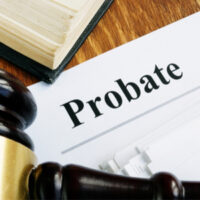A Crash Course in Probate Law Terminology

In theory, there are a lot of legal processes that are so common that you should be able to complete them without hiring a lawyer. You probably know someone who has legally changed their name, gotten a divorce, or adopted a child, and they may or may not have had professional legal representation. In practice, though, so-called routine legal processes can be stressful and overwhelming. There are so many official documents to fill out, the fine print would fill volumes if it were enlarged to a readable size, and there is so much legal terminology. Probate might be one of the most stressful legal processes of all for non-lawyers, because almost everyone involved in the probate of an estate has recently lost a close family member, and the combination of grief and a mountain of paperwork is a recipe for stress. Whether or not you decide to hire an Orlando probate lawyer, these are some legal terms you will encounter when your family member’s estate goes to probate.
Decedent
The decedent is the person who died and whose estate is now in probate. In the context of inheritance law, the decedent is called the testator, because he or she is the person from whom the heirs inherit property.
Intestate
If a person died intestate, it means that he or she did not leave a will. If there is no will, the court divides the property in the deceased person’s estate according to Florida’s laws of intestate succession, which means that the person’s spouse or other close relatives inherit the property.
Estate
The deceased person’s property which will be passed on to the heirs listed in the will (or determined according to the laws of intestate succession) at the end of probate. The deceased person may also have owned some non-probate assets, such as trusts or payable on death (POD) accounts.
Probate
The time when the estate is “open” in court is called probate. During probate, the court attempts to locate the deceased person’s will (if there is one), assets, and heirs. While it is open, the estate must file tax returns; most estates are only open for one year. Creditors to whom the decedent owed money have a chance to claim it. People who doubt the validity of the will, object to the choice of personal representative, or believe that the Florida courts do not have jurisdiction to probate the estate (for example, if the decedent was a snowbird who spent the summers in another state) can also file their objections during probate. At the end of probate, the estate settles (closes), and the heirs get the assets listed for them in the will.
Let Us Help You Today
The Orlando probate lawyers at Gierach and Gierach can advise you on how to avoid and resolve disputes if you are the family member of a deceased person whose estate is in probate. Contact Gierach and Gierach, P.A. for help with your case.
